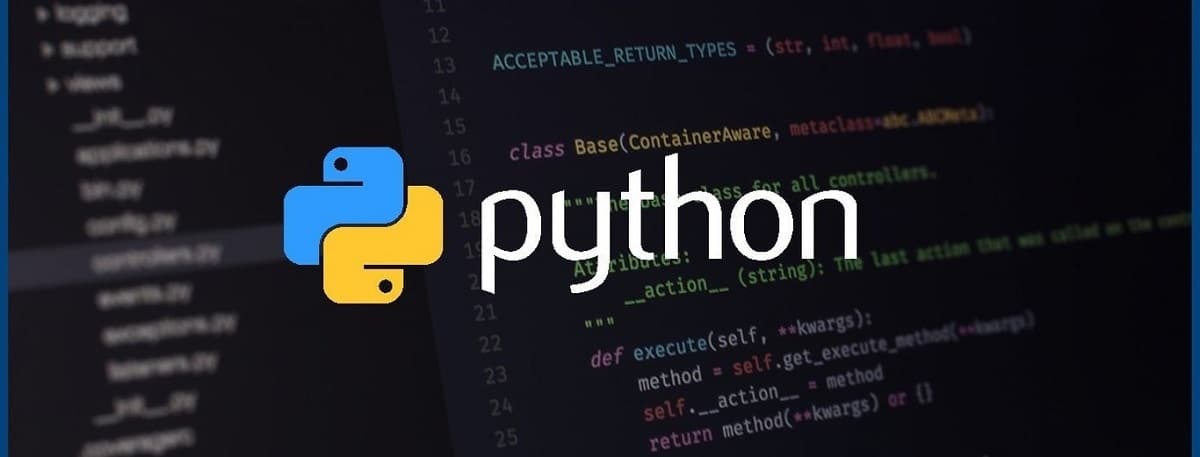
Guido van Rossum (the creator of the Python programming language), I comment a few days ago in an interview that it was very difficult for Python 4.0 to ever see the light of day, since currently the programming language goes through a rather difficult problem that is the migration from Python 2.0 to Python 3.0,
He also shared his thoughts on other languages, like Rust, Go, Julia, and TypeScript. Guido believes that Rust is an interesting language, which almost perfectly solves bottlenecks in memory management. He added that Go and Julia share great similarities with their creation and that the Python development team learns and is inspired by various features implemented in TypeScript.
Guido van Rossum and the team members Python development mention that they weren't exactly enthusiastic about the idea of Python 4, having learned some valuable lessons during the transition from Python 2 to Python 3.
“I'm not excited about the idea of Python 4 and no one on the core development team really is, so there will probably never be a 4.0 and we will continue to 3.33, at least. We've learned our Python 3 vs 2 lesson, so it's almost taboo to talk about Python 4 seriously. «.
After retiring in 2019, Guido van Rossum returned to business in November 2020 with a new position at Microsoft and on Twitter I comment that it will work to make using Python even better. It will not only be on Windows, but on all platforms, which should help make it more attractive and competitive. In fact, for the past decade, Python has been competing with younger languages considered more modern by their creators and their community.
For Guido, Rust is an "excellent" programming language who deserves all the enthusiasm towards him:
Sounds like great language, for some things. Rust really improves C ++ in one area in particular - compiler controls are much harder to bypass. And, of course, it solves the memory allocation problem almost perfectly. If you wrote the same thing in C ++, you couldn't be so sure, compared to Rust, that you got all the memory allocation and memory handling correctly. So Rust is an interesting language, ”he said.
Also, compared to C ++, Rust is a newcomer to the world of programming and many developers are reluctant to take an interest in it. However, major industry projects have started to adopt it in recent years.
And such is the example of the Linux community that for some time has announced that it has started developing parts of the kernel in Rust.
On Microsoft's side, it introduced its Rust for Windows project last year and is designed to allow programmers easy access to Windows APIs when developing Rust applications on Windows. Facebook, Amazon, Apple, Microsoft, and other major industry players recently announced that they are hiring Rust developers.
Finally As for TypeScript, the creator of Python believes that:
“TypeScript is a great language. You may have noticed that in the last six or seven years we have added optional static writing to Python, also known as progressive writing, ”he said.
“I wasn't really aware of TypeScript when we started this project, so I can't say that the language inspired us to get started. TypeScript, because he jumped on the JavaScript train, and because Anders is a very smart guy, TypeScript did some things that Python is still waiting to understand. So today we are definitely looking for examples in TypeScript. We have a typing GIS where we discuss typing syntax and semantics extensions and the general type system for Python, ”he added.
Guido went on to say that JavaScript is closer to Python than you think and that the Python development team takes a lot of inspiration from the improvements made by TypeScript.
“Sometimes we come up with new features because we know that some features were also initially missing in TypeScript, then added to TypeScript based on user demand, and [became] very popular in TypeScript. And now we can see that we are in the same situation, ”he said.
"Because JavaScript and Python are relatively similar. Much more than Python and, say, C ++ or Rust or Java. So we learn from TypeScript, and from time to time, from my conversations with Anders, it seems that TypeScript also learns from Python, just as JavaScript learned from Python in some areas, ”concluded Guido. Anders Hejlsberg is a Danish programmer working at Microsoft and one of the great architects of TypeScript.